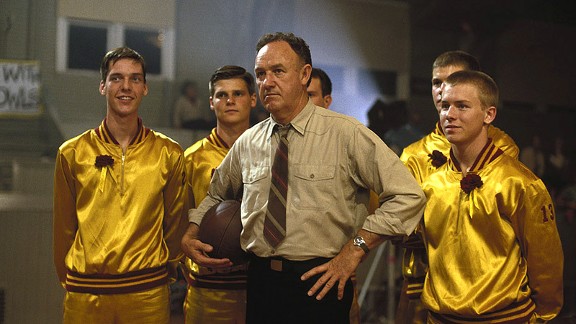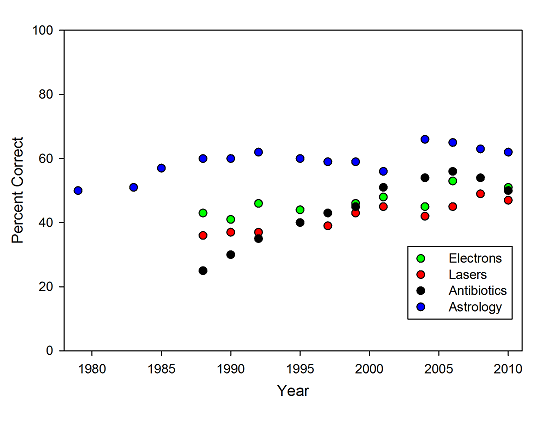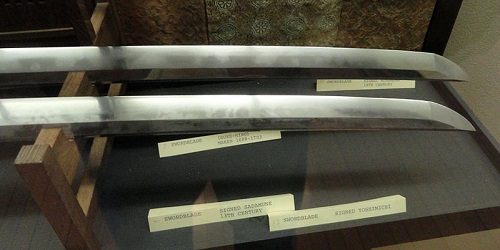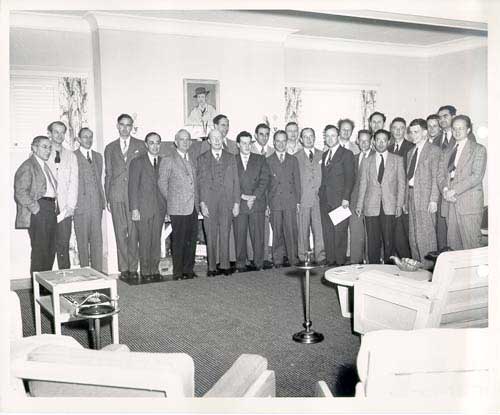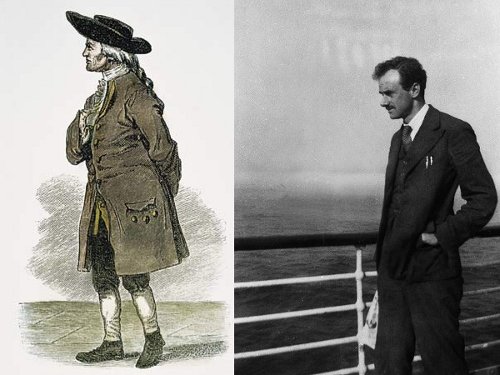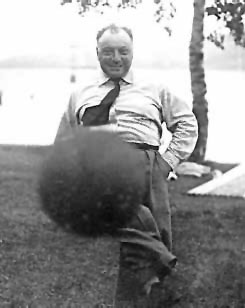The stupid Steven Pinker business from a few weeks ago turned out to do one good thing after all. It led to this post at Making Science Public, which quoted some books by Jacob Bronowski that sounded relevant to my interests. And, indeed, on checking The Common Sense of Science out of the college library,… Continue reading How to Think Like a Scientist, Sixty Years Ago
Category: History of Science
Fun With Simulated Scattering
Two chapters of the book-in-progress will be devoted to the development of the modern understanding of the atom. One of these is about the Bohr model, which turned 100 this year, but Bohr’s model would not have been possible without an earlier experiment. The actual experiment was done by Ernest Marsden and Hans Geiger, but… Continue reading Fun With Simulated Scattering
Wanted: The Hoosiers of Science
I’ve been revising a chapter on collaboration in science for the book-in-progress, making an analogy to team sports. And it occurred to me as I was trying to find a way to procrastinate, that while science is a highly collaborative endeavor, most of the popular stories that get told about science are not. There’s no… Continue reading Wanted: The Hoosiers of Science
On Narratives of Decline, or The Age of Denial Is Fifty
Adam Frank has an op-ed at the New York Times that tells a very familiar story: science is on the decline, and we’re living in an “Age of Denial”. IN 1982, polls showed that 44 percent of Americans believed God had created human beings in their present form. Thirty years later, the fraction of the… Continue reading On Narratives of Decline, or The Age of Denial Is Fifty
Eddington, Neutrinos, and the Changing of Meaning by Context
I’m writing a bit for the book-in-progress about neutrinos– prompted by a forthcoming book by Ray Jaywardhana that I was sent for review– and in looking for material, I ran across a great quote from Arthur Stanley Eddington, the British astronomer and science popularizer best known for his eclipse observations that confirmed the bending of… Continue reading Eddington, Neutrinos, and the Changing of Meaning by Context
Technology Is Science, Too
Via a retweeted link from Thony C. on Twitter, I ran across a blog post declaring science a “bourgeois pastime.” The argument, attributed to a book by Dierdre McCloskey is that rather than being at the root of economic progress, scientific advances are a by-product of economic advances. As society got more wealthy, it was… Continue reading Technology Is Science, Too
Naming Names in QED
I’m doing edits on the QED chapter of the book-in-progress today, and I’m struck again by the apparent randomness of the way credit gets attached to things. QED is a rich source of examples of this, but two in particular stand out, one experimental and the other theoretical. On the experimental side, it’s interesting to… Continue reading Naming Names in QED
Science Is Not Solitary
There was another round of the “who counts as a scientist?” debate recently, on Twitter and then on the Physics Focus blog. In between those, probably coincidentally (he doesn’t mention anything prompting it), Sean Carroll offered a three-step definition of science: Think of every possible way the world could be. Label each way an “hypothesis.”… Continue reading Science Is Not Solitary
“Singular Oddities of Character”: Cavendish and Dirac
One of the oddities of writing the book-in-progress is that it involves a lot more history-of-science than I’m used to. which means I’m doing things like checking out 800-page scientific biographies from the college library so I can use them to inform 500 word sections of 4000 word chapters. One of these is Cavendish: The… Continue reading “Singular Oddities of Character”: Cavendish and Dirac
Quasi Poll: Most Needed Pop-Science Biography?
I’ve got a ton of stuff that needs to get done this week, but I don’t want the blog to be completely devoid of new content, so here’s a quasi-poll question for my wise and worldly readers: What scientist is most in need of a good popular biography? By “popular biography,” I mean things like… Continue reading Quasi Poll: Most Needed Pop-Science Biography?

